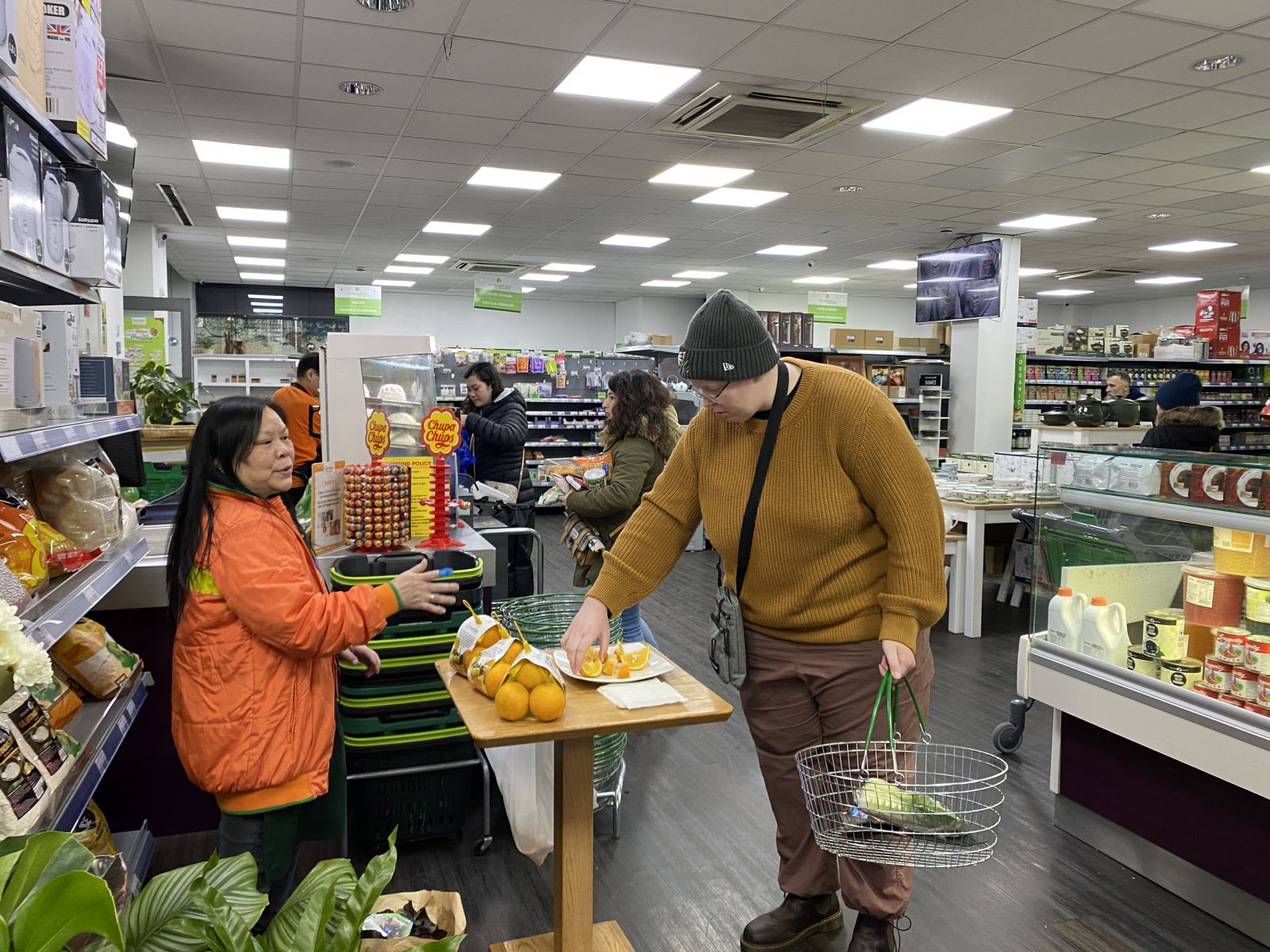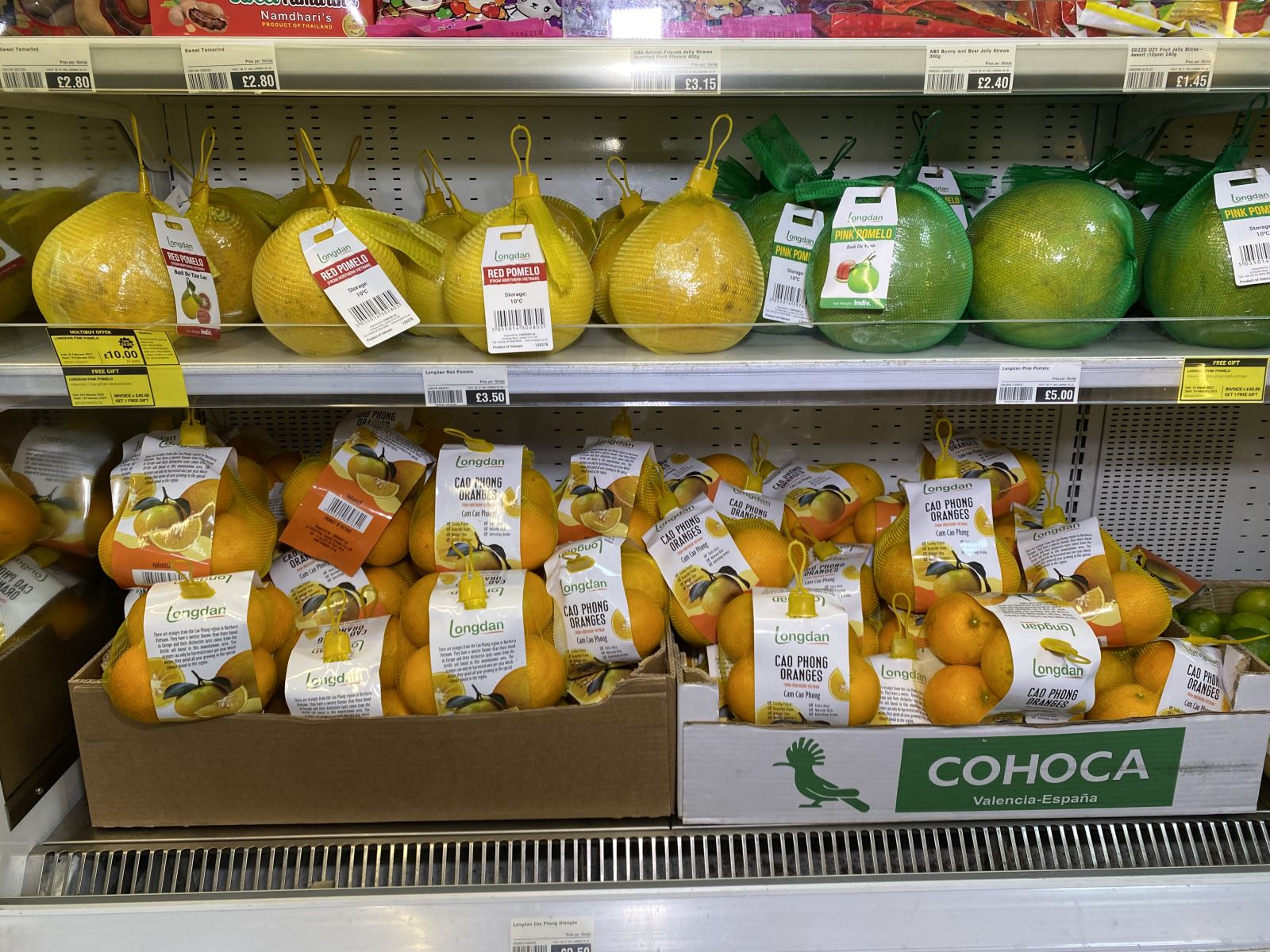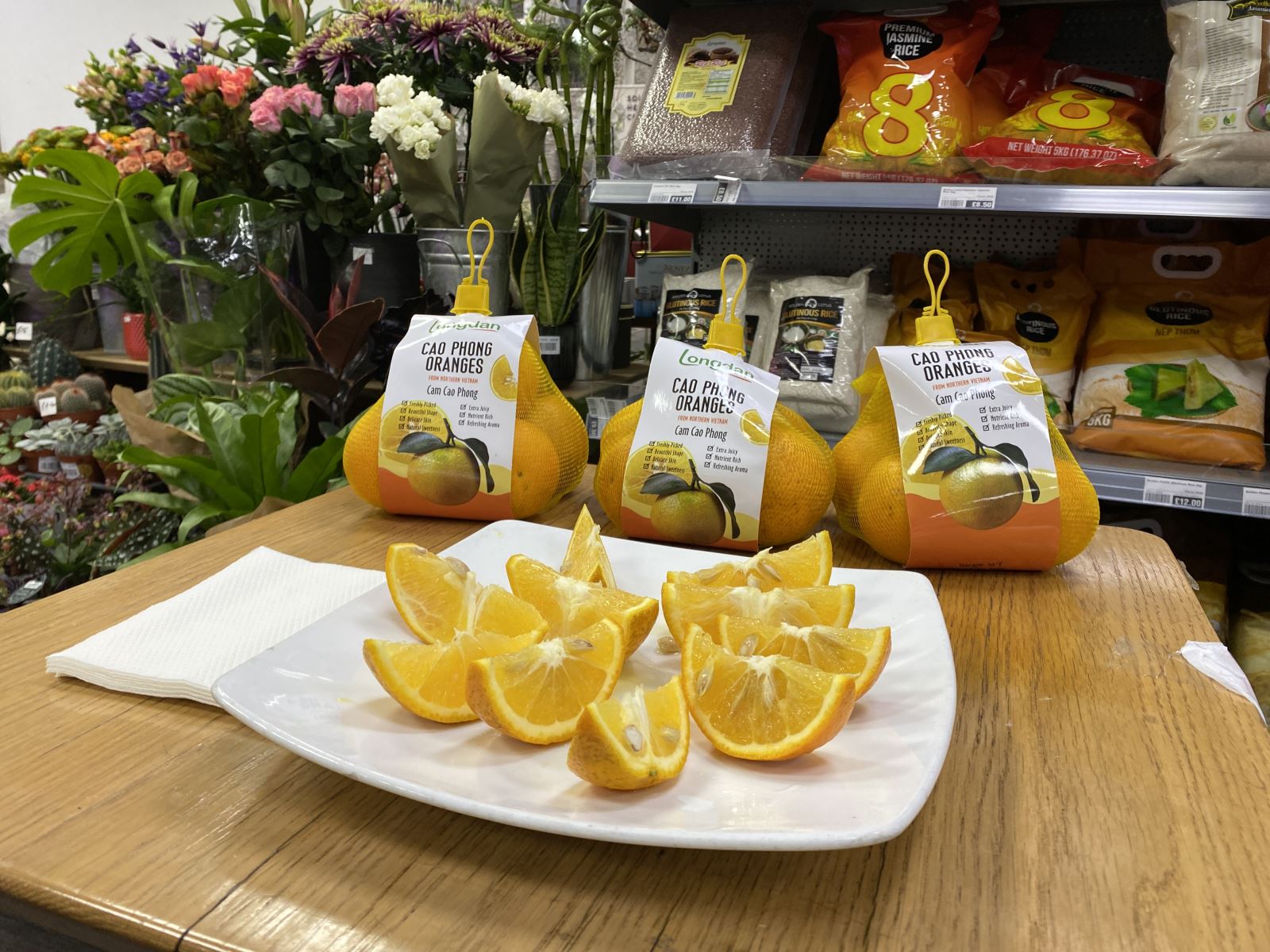
(HBO) – After the red-flesh pomelo of Tan Lac district and the Dien pomelo of Yen Thuy district, the orange from Cao Phong district of Hoa Binh province is now officially put up for sale in the UK, marking the return of this specialty to the global market after over 40 years.
Seven tonnes of the Cao Phong orange has been officially imported
into the UK.
To enter the British market, the nearly 7 tonnes
of Cao Phong orange, exported via the official channel by the Hoa Binh-based
RYB joint Stock Company, met strict quality, food safety, and origin standards,
including passing the testing for nearly 900 chemical elements in plant
protection products.
The fruit, imported by the Longdan group, is
sold at the Longdan supermarket chain in London and some other cities in the
UK. It is also distributed to other local wholesalers and retailers of Asian
products, initially winning positive assessment from local consumers.
In February, Longdan, the biggest importer of
Vietnamese goods in the UK, also purchased over 5 tonnes of the red-flesh
pomelo farmed in Tan Lac district and 11 tonnes of the Dien pomelo farmed in
Yen Thuy district of Hoa Binh province. This was also the first time the citrus
of the two varieties cultivated in Hoa Binh had been officially exported to the
UK.
The Cao Phong
orange has been highly valued by many consumers.
Nguyen Canh Cuong, Trade Counsellor of Vietnam’s
Trade Office in the UK, said the successful export of pomelo and orange has
shown Vietnamese producers and exporters’ breakthrough progress in meeting
quality and Global GAP production standards.
The UK has great demand for orange and pomelo,
especially orange, he said, noting that it imports about 420 tonnes of orange
worth some 263 million GBP (315 million USD) each year, mainly from Spain,
South Africa, Morocco, and Egypt.
While most of Vietnam’s fresh fruits exported to
the UK such as lychee, mango, and dragon fruit face some preservation
difficulties, orange and pomelo can be kept for a longer time thanks to their
characteristics, especially pomelo which needs a certain period between harvest
and consumption to generate the best taste.
However, Cuong added, though the Cao Phong
orange and Dien pomelo have high quality to imported rivals in the UK,
businesses should pay attention to prices to stay competitive and expand their
market share there.
The Cao Phong
orange is put up for sale besides the green-skin pomelo, red-flesh pomelo, and
Dien pomelo of Vietnam at a Longdan supermarket.
The Trade Counsellor noted as the Vietnamese
orange and pomelo are new products here, the firms also need to have
appropriate marketing strategies, especially digital marketing, to introduce
them to local consumers. This is a global trend that Vietnamese businesses
should apply as soon as possible in such a developed market as the UK that is
relatively far from Vietnam.
Luke McWatters, a consumer in London, said the
Cao Phong orange is much sweeter than other types of imports. He used to spend
a holiday in Vietnam and taste many delicious fruits that haven’t been sold in
the UK. He expressed his hope that Vietnam will export more fresh fruit to the
UK in the furture so that British consumers can enjoy its quality produce.
The Cao Phong
orange displayed and introduced to British consumers.
According to data from the Hoa Binh Provincial Party Committee, the industrial production index for the first six months of 2025 is estimated to have increased by 20% compared to the same period last year. This marks the highest year-on-year growth rate for this period since 2020.
In the first six months of 2025, Hoa Binh province’s export turnover was estimated at 1.145 billion USD, marking an 18.11% increase compared to the same period in 2024. Import turnover was estimated at $ 804 million, a 17.15% increase, which helped the province maintain a positive trade balance.
The lives of the ethnic minority farmers in Tan Lac district have gradually improved thanks to the new directions in agricultural production. This is a testament to the collective strength fostered through the professional associations and groups implemented by various levels of the district’s Farmers’ Union.
With the motto the "product quality comes first,” after nearly one year of establishment and operation, Muong village’s Clean Food Agricultural and Commercial Cooperative, located in Cau Hamlet, Hung Son Commune (Kim Boi district), has launched reputable, high-quality agricultural products to the market that are well-received by consumers. The products such as Muong village’s pork sausage, salt-cured chicken, and salt-cured pork hocks have gradually carved out a place in the market and they are on the path to obtaining the OCOP certification.
In the past, the phrase "bumper harvest, rock-bottom prices" was a familiar refrain for Vietnamese farmers engaged in fragmented, small-scale agriculture. But today, a new spirit is emerging across rural areas of Hoa Binh province - one of collaboration, organisation, and collective economic models that provide a stable foundation for production.
Maintaining growing area codes and packing facility codes in accordance with regulations is a mandatory requirement for agricultural products to be eligible for export. Recently, the Department of Agriculture and Environment of Hoa Binh province has intensified technical supervision of designated farming areas and packing facilities to safeguard the "green passport" that enables its products to access international markets.






